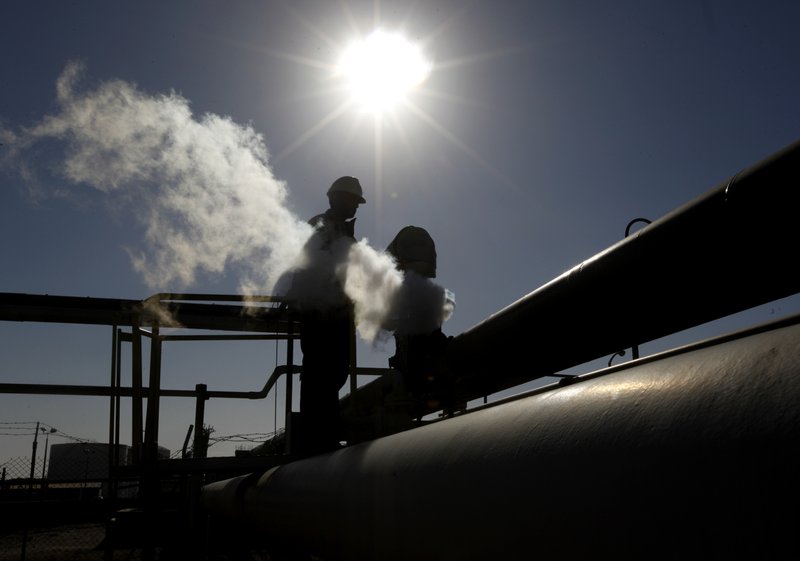
CAIRO (AP) — Losses from the closures of Libya’s major oil fields and production facilities have continued to increase, surpassing $560 million for a 10-day period, the country’s national oil company said.
The closures came about when powerful tribal groups loyal to Libyan military commander Khalifa Haftar earlier this month seized several large export terminals along Libya’s eastern coast, as well as southern oil fields. Haftar’s forces, which control the eastern and much of the southern part of the country, launched an offensive in April to capture Libya’s capital, Tripoli, from the U.N.-supported but weak government based there.
Since the 2011 ouster and killing of dictator Muammar Gadhafi, Libya has sunk further into turmoil and is divided between rival governments based in its east and west, each supported by various armed militias and foreign backers. Haftar is loyal to the east-based administration.
In a statement late Wednesday, the National Oil Corporation, which dominates Libya’s critical oil industry, said the losses were recorded for the period ending Tuesday. An earlier statement from the company reported over $502 million in losses for a 10-day period ending Monday.
The NOC, which put the daily losses at nearly $60 million, posted on its Facebook page an appeal to “end the illegal closures and to allow the corporation to resume production immediately.”
The company on Jan. 18 declared a force majeure, which means it’s unable to fulfill international contracts due to sudden and disruptive events. The daily production has since then fallen from 1.2 million barrels a day to nearly 288,200 on Tuesday, according to the statement.
The NOC’s latest figures show the losses almost doubled this week — on Saturday, it had recorded nearly $256.5 million in losses over a six-day period.
At the same time, the NOC offered assurances to residents in central and eastern Libya that there was still “sufficient” fuel in storage, though it warned that warehouses in the country’s western and southern provinces were running short.
Oil, the lifeline of Libya’s economy, has long been a key factor in the civil war, as rival authorities jostle for control of oil fields and state revenue. Libya has the ninth largest known oil reserves in the world and the biggest oil reserves in Africa.
The closure of the oil facilities was seen as part of Haftar’s efforts to capture Tripoli and punish his adversaries there for sealing security and maritime agreements with Turkey, opening doors for unlimited military support from Ankara. The shutdowns also come against the backdrop of a crumbling cease-fire mediated by world leaders in Berlin earlier this month.
Reporting by The Associated Press
Image: In this Feb. 26, 2011 file photo, a Libyan oil worker, works at a refinery inside the Brega oil complex, in Brega, eastern Libya. ON Saturday, Jan. 18, 2020, the National Oil Corporation in Libya says that a decision by east-based forces to choke off oil exports from its territory has threatened to throttle much of the country’s oil production (AP Photo/Hussein Malla, File)




